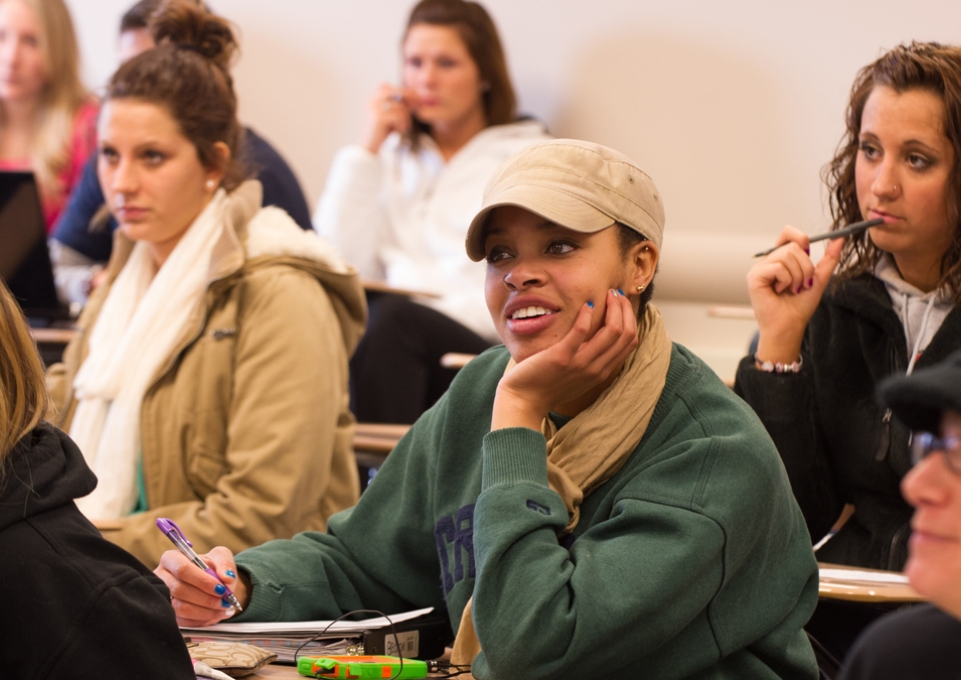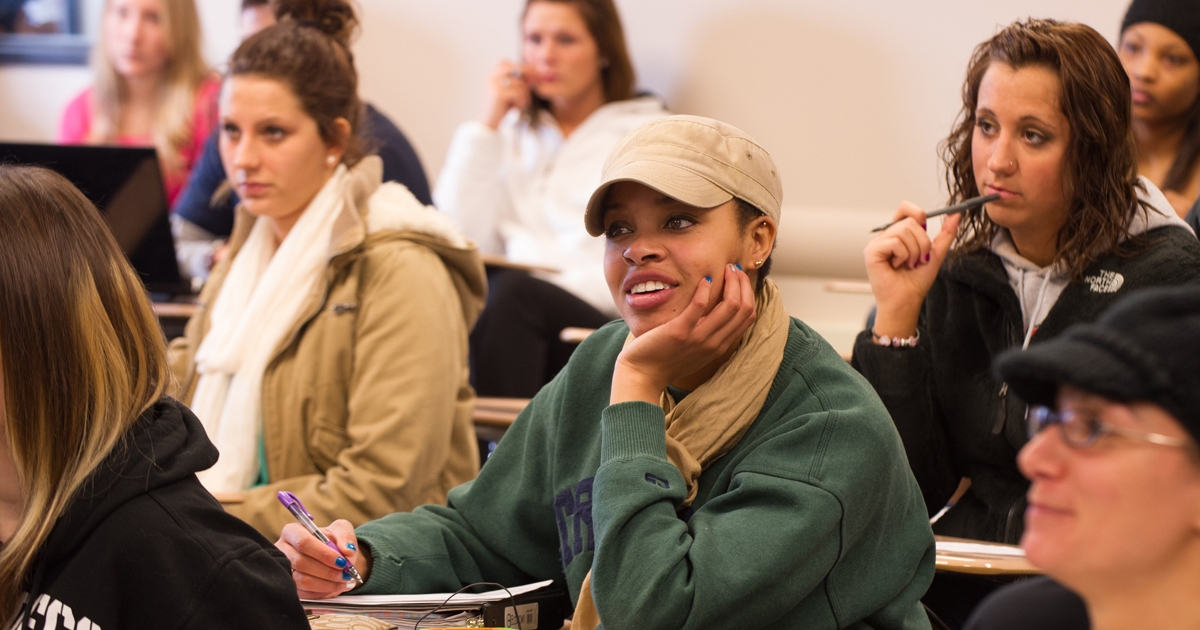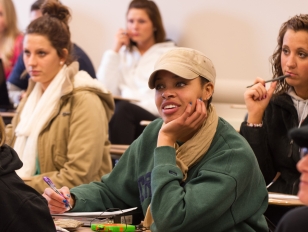
The term “health” covers a wide range of mental and physical conditions that relate to overall wellness. A large component of maintaining a positive state of mind and body is utilizing helpful resources from the professionals who devote their lives to the fields of mental and physical health.
Three Buffalo State College students in the Psychology; Health, Nutrition, and Dietetics; and Sociology departments are exploring mind and body through majors that are preparing them for careers dedicated to different aspects of promoting human health.
Psychology major Vanessa Schieble was a training instructor in the military for 10 years, which she said inspired her to pursue her current major and to teach in a setting that differed from the more structured, one-dimensional environment she was used to.
“I had to really understand how to connect with people outside of a military environment,” she said. “I took a Psych 101 class and just fell in love with it.”
Schieble explained how her experience as a student of psychology has helped her relate many concepts of the field to her personal life and toward her perceptions of others.
“I think it’s made me more well-rounded, probably a lot more empathetic to the way people respond to things like stress,” she said. “It makes you a little bit more sensitive to people’s differences and what makes them unique.”
The connection between an individual’s state of being and their role in society is another area that integrates critical analysis into everyday life, said sociology major Eilise Shaw.
“It’s a lot of interaction between the bigger picture and the little picture. [Sociology] doesn’t focus so much on individual behaviors, but it’s so important because our individual behaviors are also shaped by others.”
There is a strong overlap between state of mind and state of body, as one affects the other, explained Kelly Lindner, a double-major in health and wellness and dietetics. Good health depends on not neglecting either one of these areas but instead, creating balance.
“Being active is the biggest thing with mental health,” she said. “If you’re just sitting around stressing about everything that you have to do, it doesn’t help; if you go to the gym or go for a walk, it clears your head and helps you figure out what to do and prioritize more.”
Lindner aspires to become a sports dietitian and hopes to use her career to help others live healthier lifestyles.
“I’ve always been interested in teaching others what I know and helping them: health-wise, exercise-wise, nutrition-wise,” she said.
Lindner said her experience of teaching cooking classes to fifth- and sixth-graders is one way that she has been able to use her area of study to make an impact.
While Shaw said she is interested in forensic psychology but is still determining her career path, she has credited her time as a student of sociology with helping her better understand the effects of one’s environment on behavior and mindset.
“By being able to think critically about human behavior and institutions or structures that impact us in our everyday lives, I’m gaining a lot more awareness,” she said.
The term “wellness” is often used when discussing the state of mind and body, but it varies in meaning among individuals. Across areas of study and professions devoted to mental and physical health, however, some key similarities are considered essential to being healthy inside and out.
“Physical wellness is important because it also connects to psychological, emotional wellness, but emotional and mental well-being are vital to functioning,” Shaw said. “When we have a healthy mindset, it definitely impacts the way we function and interact.”
Schieble also shared the importance of peace of mind in relation to wellness by offering some tips to overcome stress.
“Setting goals that are attainable, making sure you have a balanced lifestyle, and learning not to overwhelm yourself by learning when to say ‘no’; I think those are three really key things for any college students to know because it reduces stress,” she said.
Even in relation to physical health, wellness starts within, Lindner explained.
“Overall wellness is happiness and feeling fulfilled in what you’re doing,” she said. “Living your best life, I would say, is the big thing with wellness.”
Pictured: Dr. Robert Delprino's psychology class at Buffalo State.
Photo by Bruce Fox, campus photographer.



